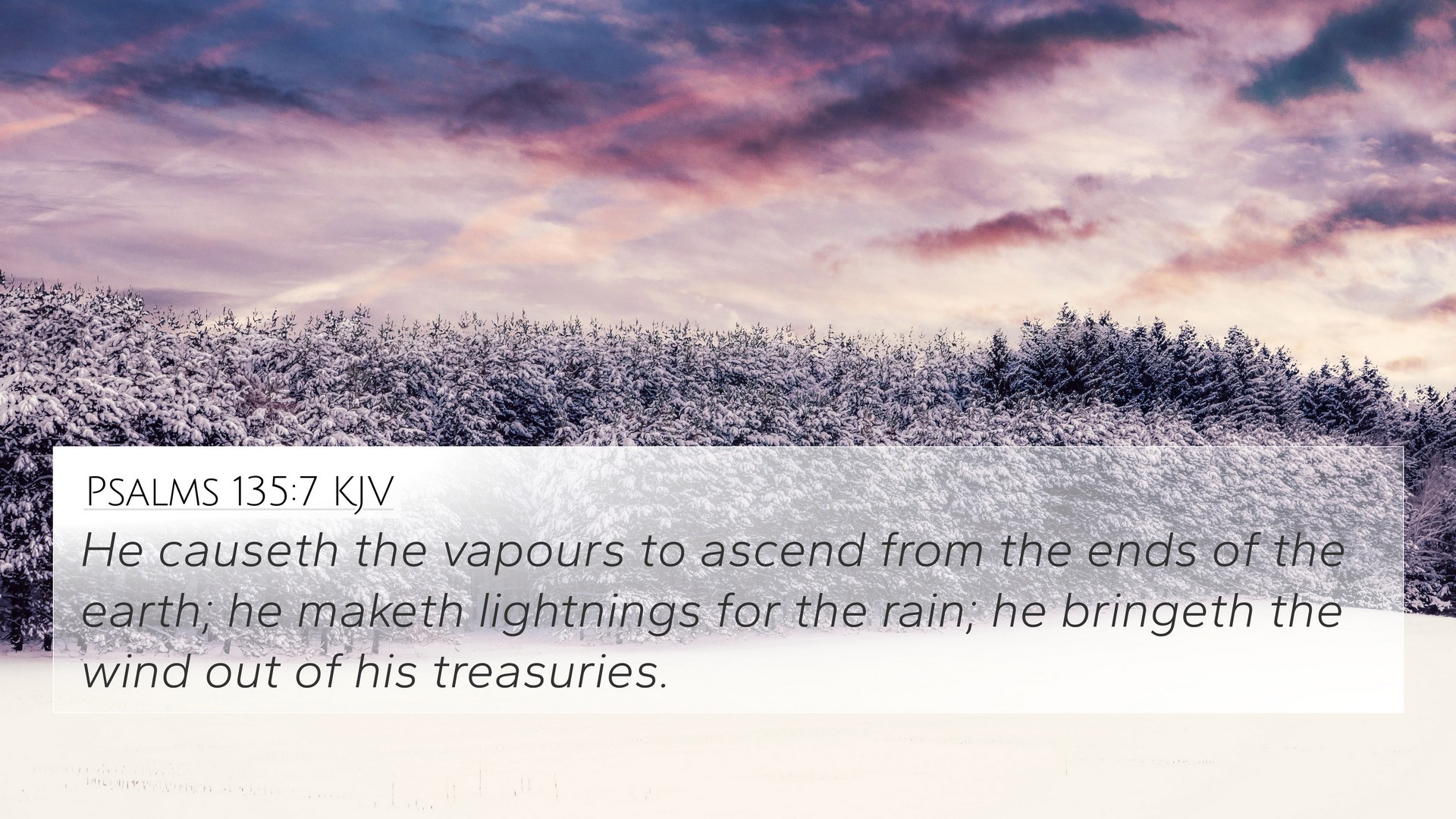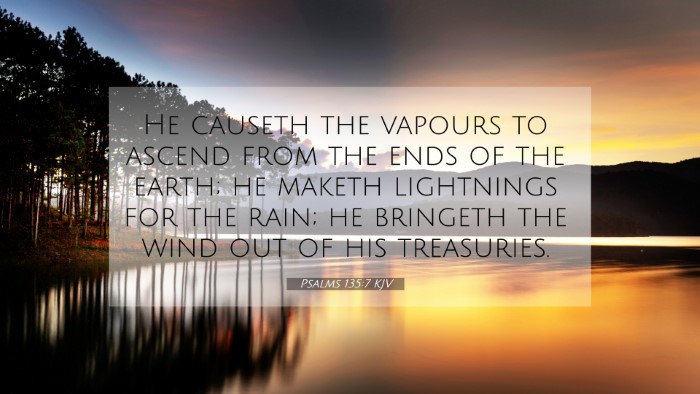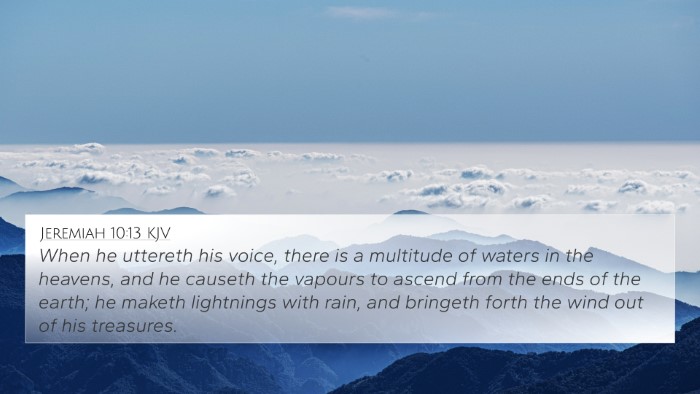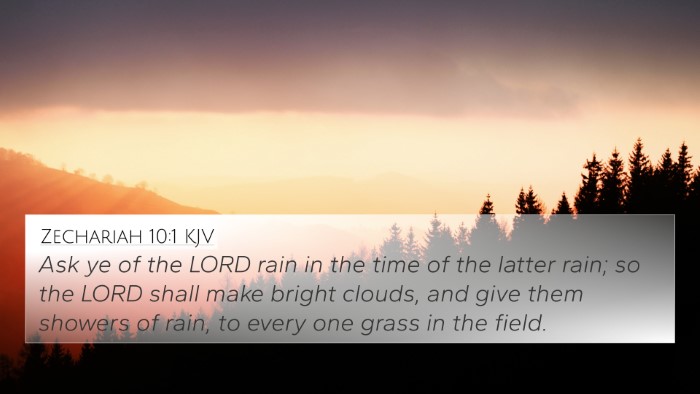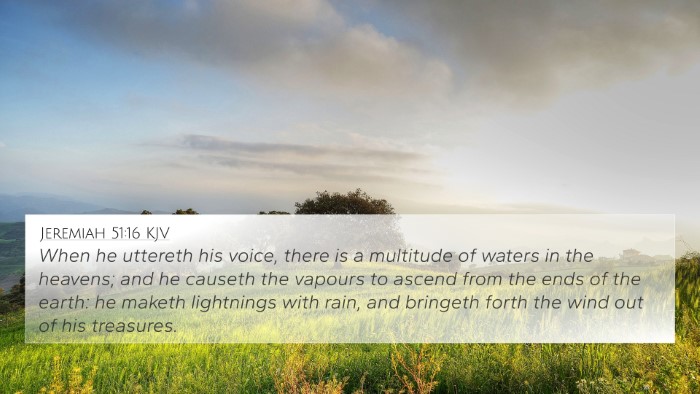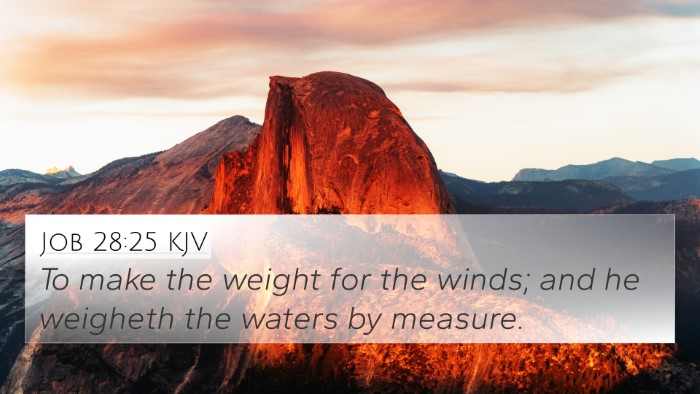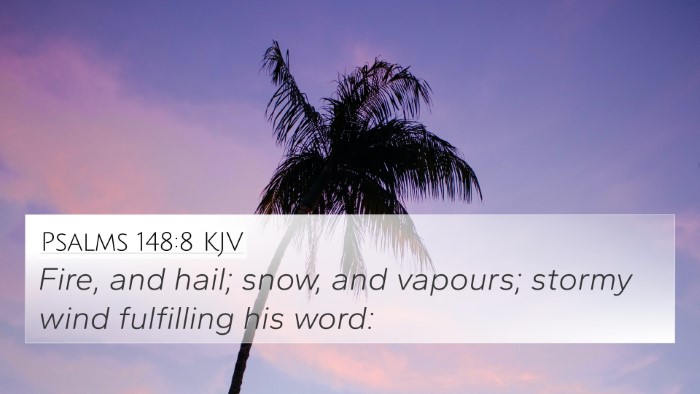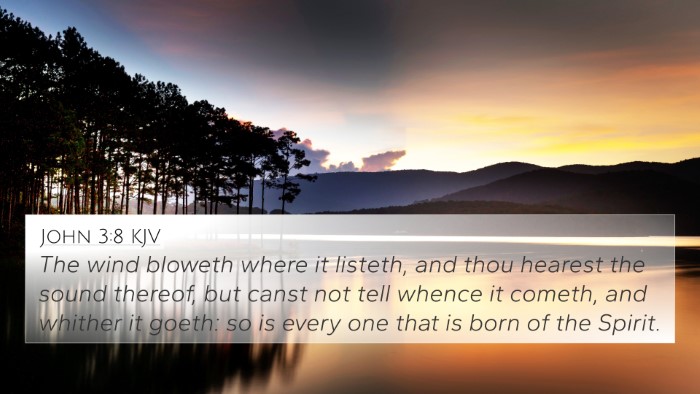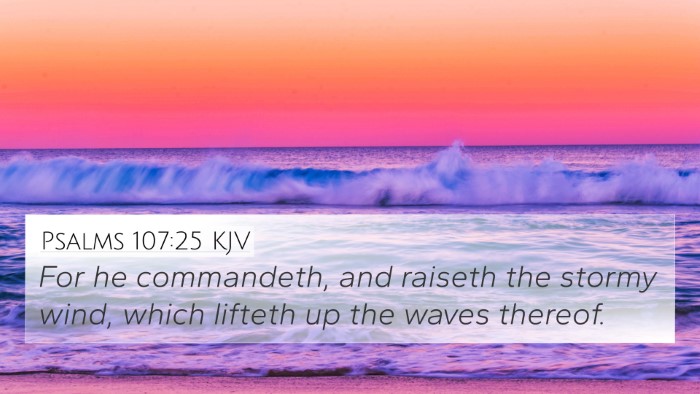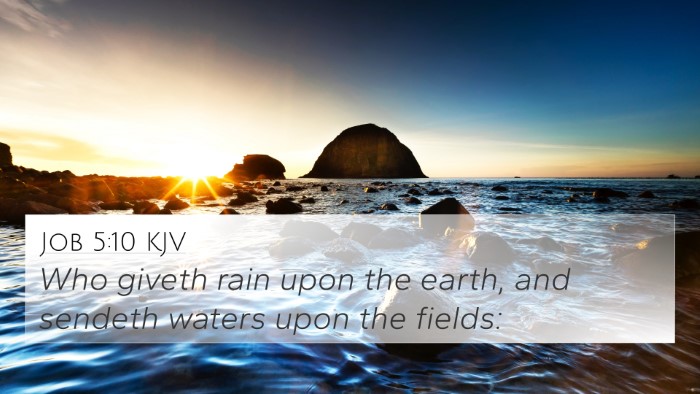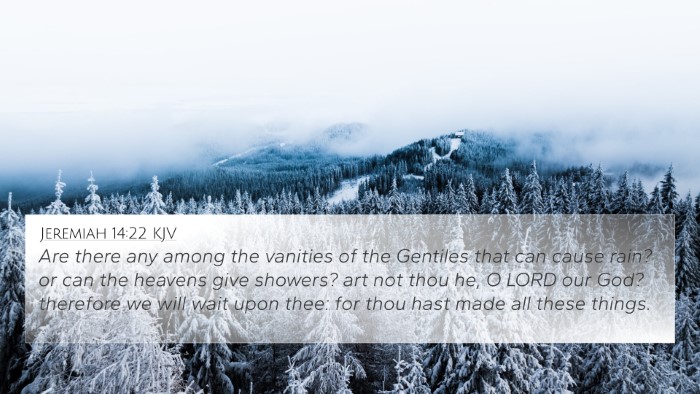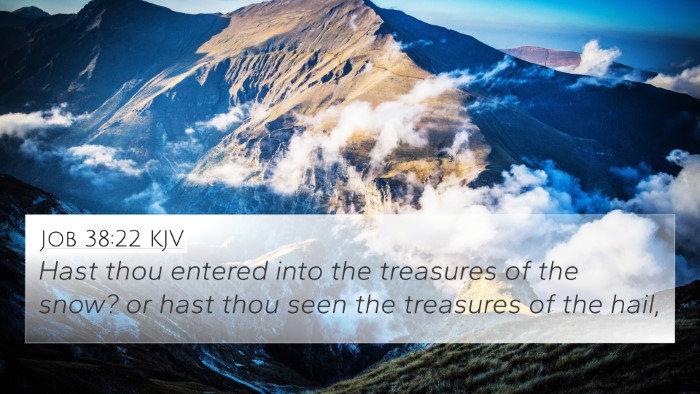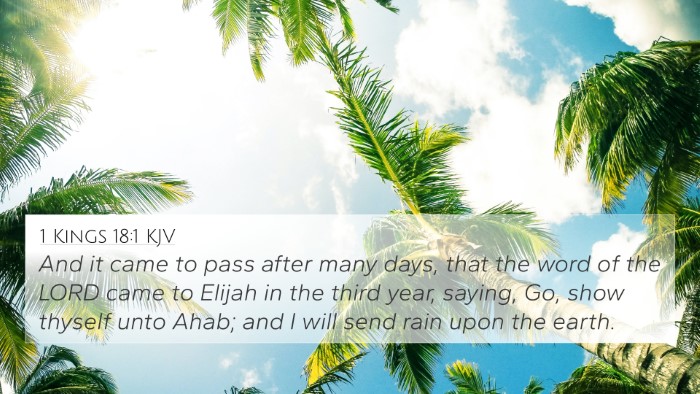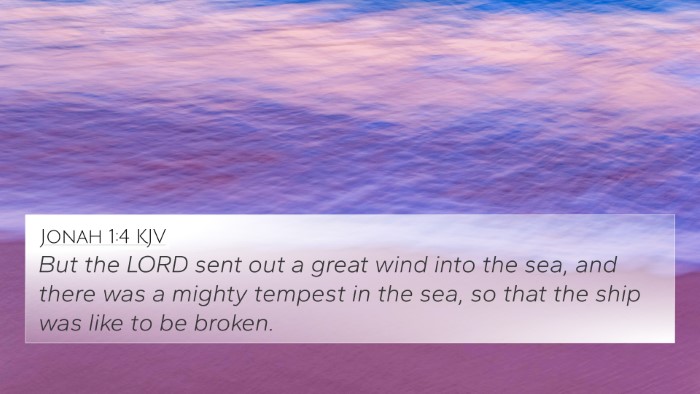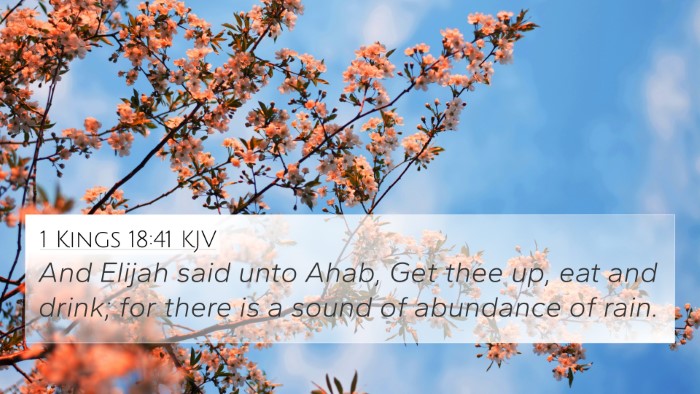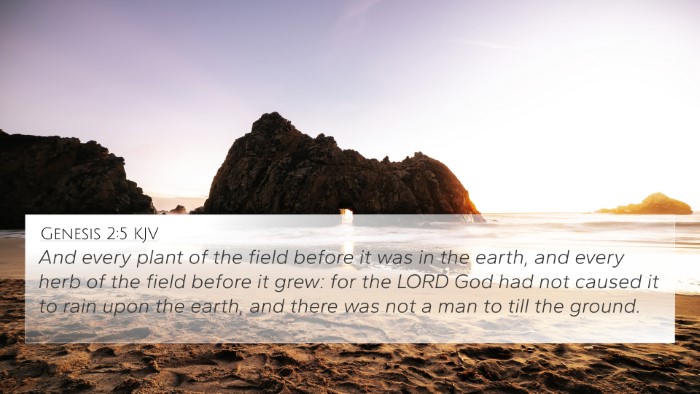Psalms 135:7 - Summary and Interpretation
Psalms 135:7 states, "He bringeth the vapors out of the ends of the earth; he maketh lightnings for the rain; he bringeth the wind out of his treasures." This verse speaks to the sovereignty and power of God over the natural elements. It emphasizes that all of creation obeys His will, showcasing His omnipotence and providential guidance over the universe.
Meaning and Insights from Commentaries
-
Matthew Henry's Commentary:
Matthew Henry highlights that this verse underscores God's authority over nature. The "vapors" and "lightnings" signify not just physical phenomena but also the spiritual realities that reflect God's might. By controlling the rain, God demonstrates His provision, which serves as an assurance for His people that they are under His care and governance.
-
Albert Barnes' Commentary:
Barnes notes that the mention of bringing forth vapors signifies the processes of rain formation. He emphasizes that this reflects a divine orchestration, pointing to God's active role in maintaining the order of nature. The verse calls believers to recognize God's wisdom in each natural occurrence, fostering trust in His plans.
-
Adam Clarke's Commentary:
Clarke delves into the imagery of God bringing the wind and making lightning, suggesting a divine interplay in natural events. This personification of nature under God's hand serves to illustrate His unfathomable power and serves a didactic purpose for the faithful, reminding them of God's greatness and involvement in the world.
Connections Between Bible Verses
Psalms 135:7 has several connections with other Biblical verses that further elaborate on the themes of divine authority and nature's obedience to God. Below are notable cross-references:
- Job 37:11-13: God controls the weather phenomena and cold storms, illustrating His command over nature.
- Psalms 148:8: It speaks of how the elements, including stormy winds, fulfill God's commands, serving as a testimony to His sovereignty.
- Jeremiah 10:13: This verse emphasizes God’s power over the waters and their ability to rise at His voice, illustrating His command over creation.
- Matthew 5:45: Jesus reflects God's provision through rain and sunshine, underlining God's goodness to all beings.
- Mark 4:39: Jesus calms the storm, demonstrating His authority over nature, aligning perfectly with the theme of God's control in Psalms 135:7.
- Romans 1:20: Paul teaches that God’s attributes are evident in creation, linking our understanding of nature to the divine influence upon it.
- Isaiah 40:26: This verse calls us to lift our eyes to the heavens and consider God's creation, affirming the infinite power of the Creator.
Thematic Connections in the Bible
The themes of God's sovereignty and power over nature resonate throughout scripture. By examining the interconnections between verses, we can enhance our understanding of God's characteristics.
- Creating and Sustaining Power: Divine control exemplified in Genesis 1:3 where God commands light to appear.
- Nature's Response to God: In Psalms 104:24-25, the psalmist marvels at the vastness of God's creation and how water bodies serve His purposes.
- Trust in Divine Provision: Referencing Matthew 6:26, where Jesus illustrates that God cares for the birds, affirming His providence over all of creation.
Tools for Bible Cross-Referencing
For those seeking to deepen their understanding through cross-references, utilizing a Bible concordance can be invaluable. Resources are available to aid in identifying thematic connections and inter-Biblical dialogue among scriptural texts.
Practical Applications
Understanding Psalms 135:7 can imbue believers with a sense of peace concerning God's control over nature and life’s uncertainties. It encourages believers to view climatic and natural events not as mere coincidences but as manifestations of God's overarching plan.
In conclusion, exploring Bible cross-references offers a richer experience of understanding scripture. It allows for a comparative Bible verse analysis that not only reveals God's nature but also weaves a complete narrative through the interconnectedness of His word.
